
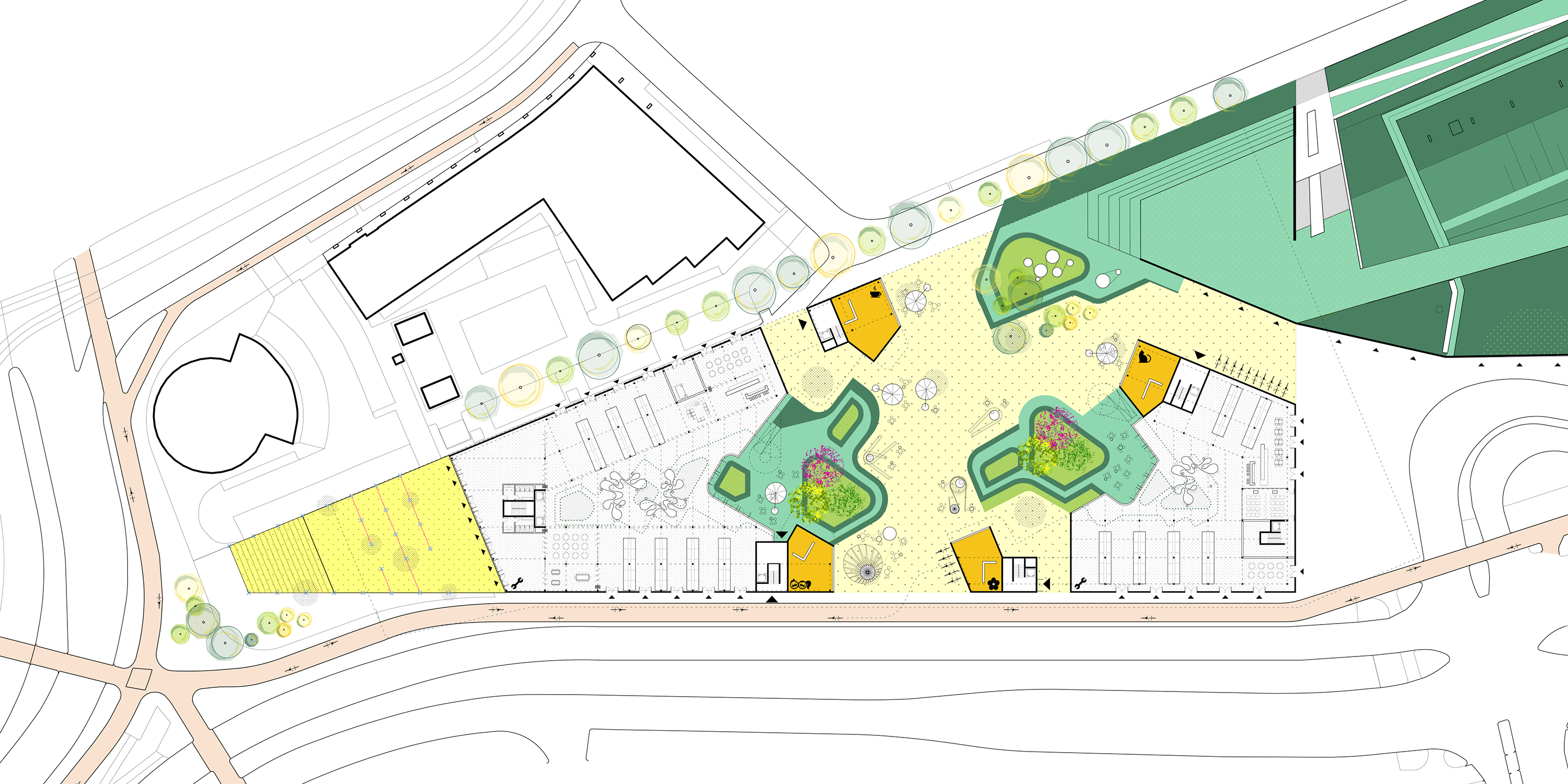
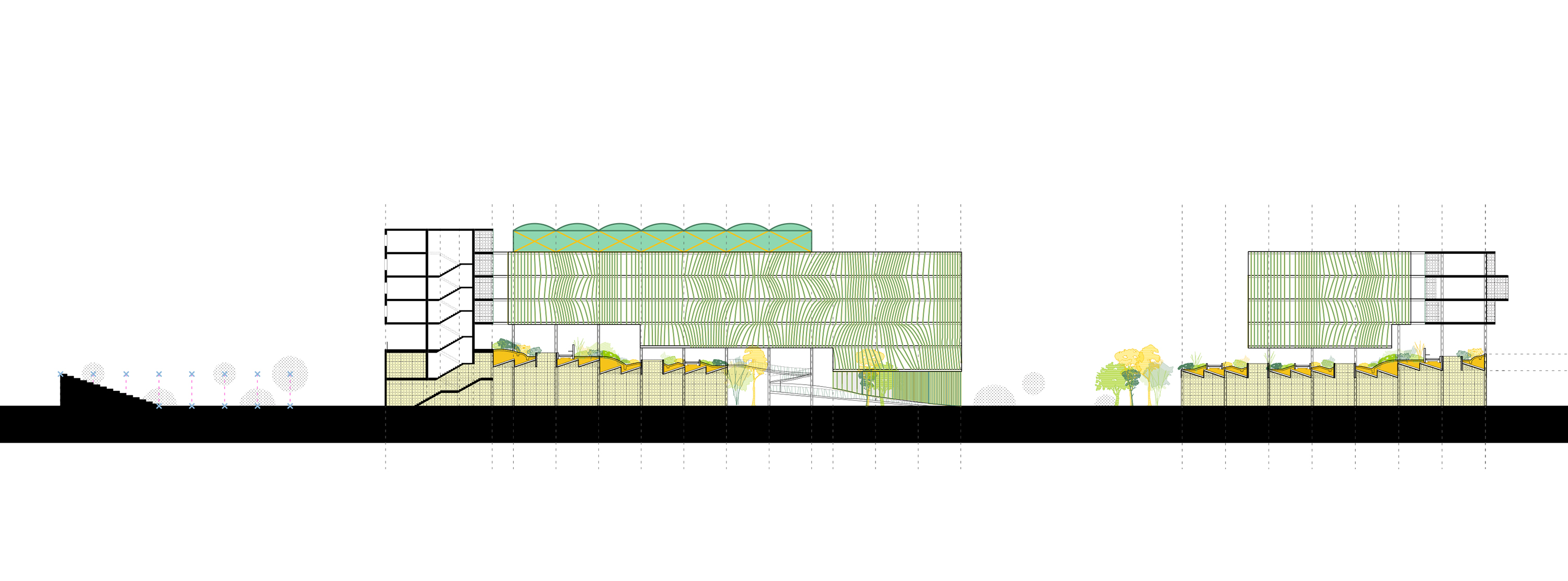

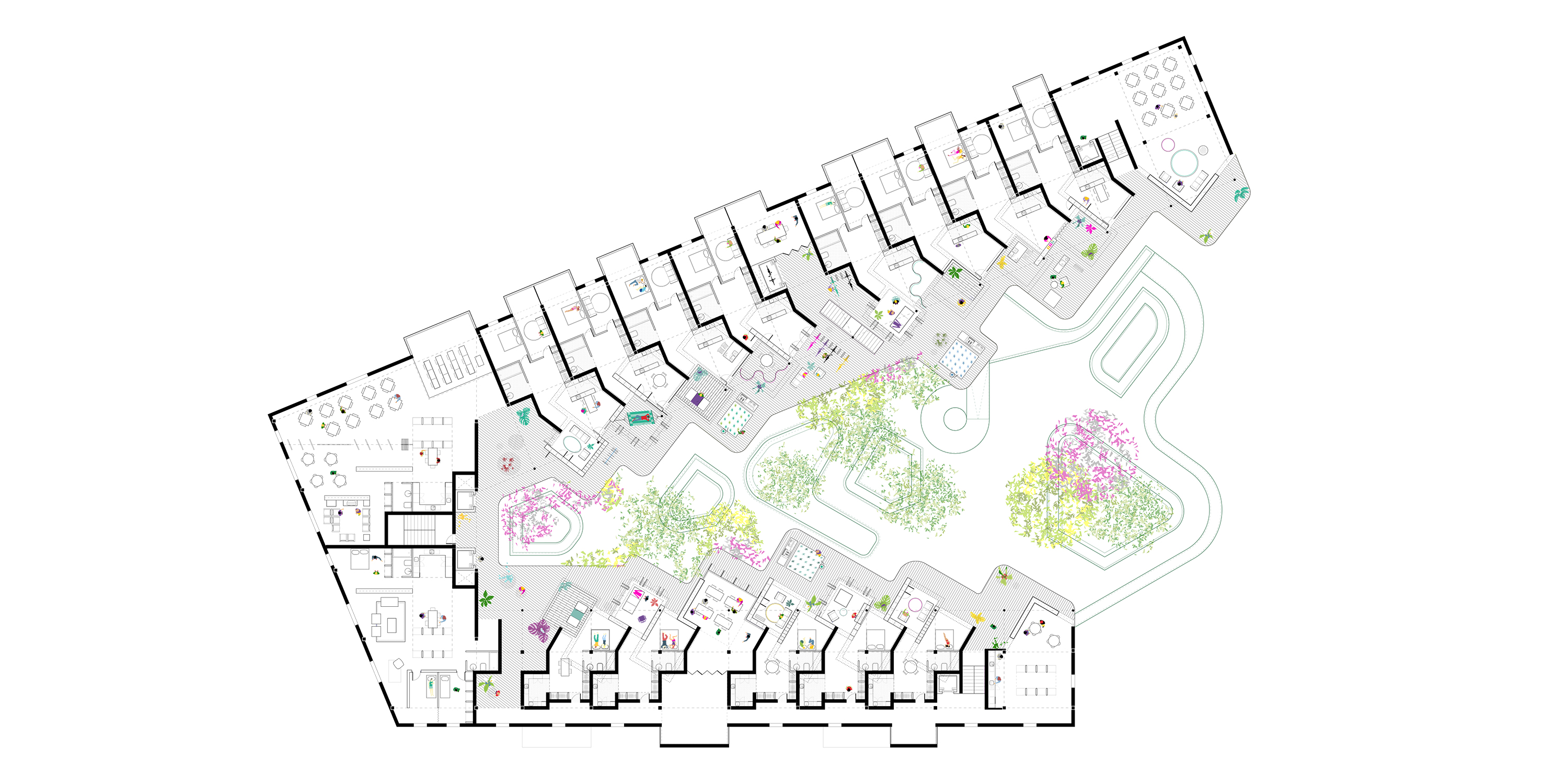
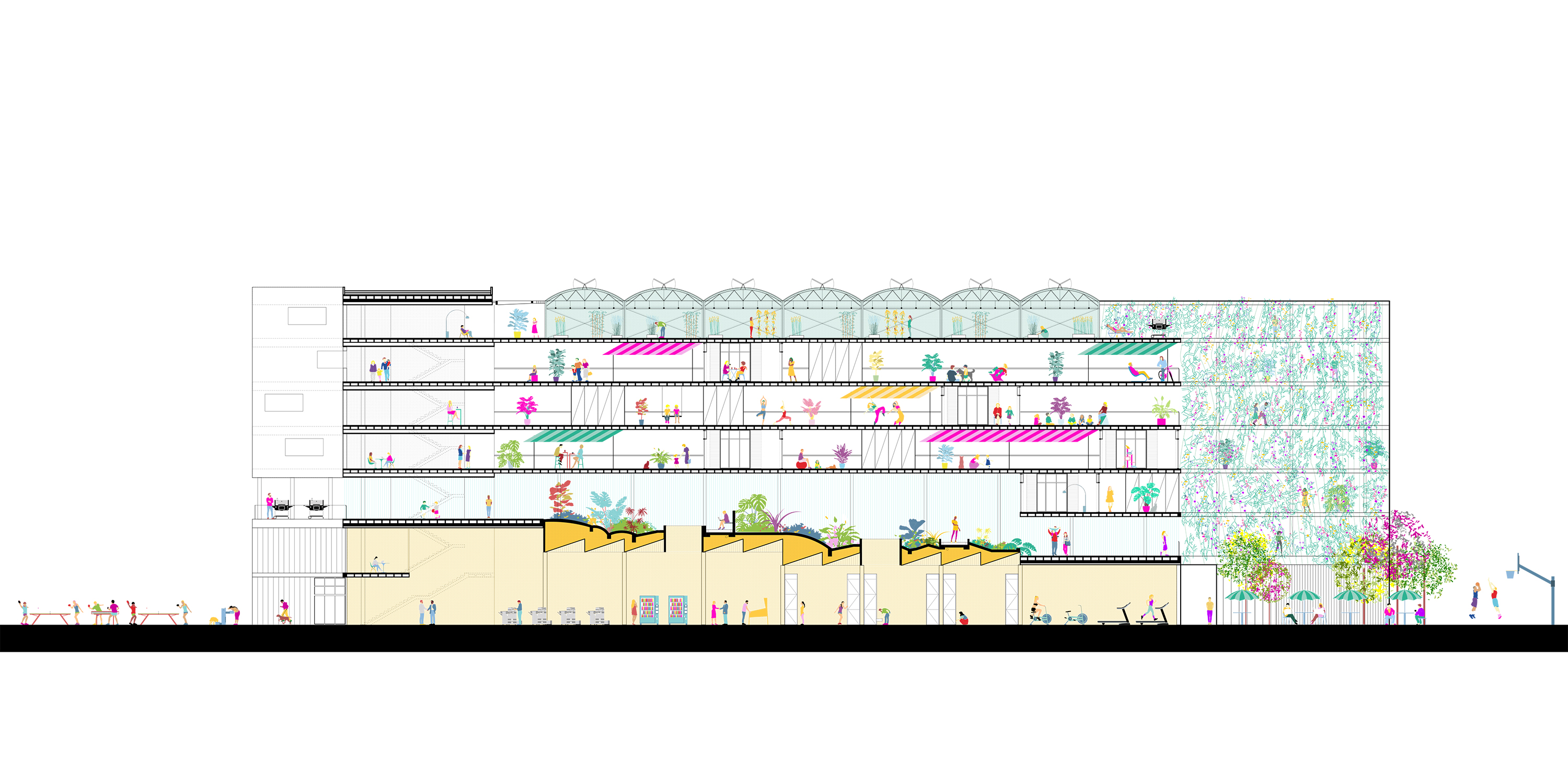
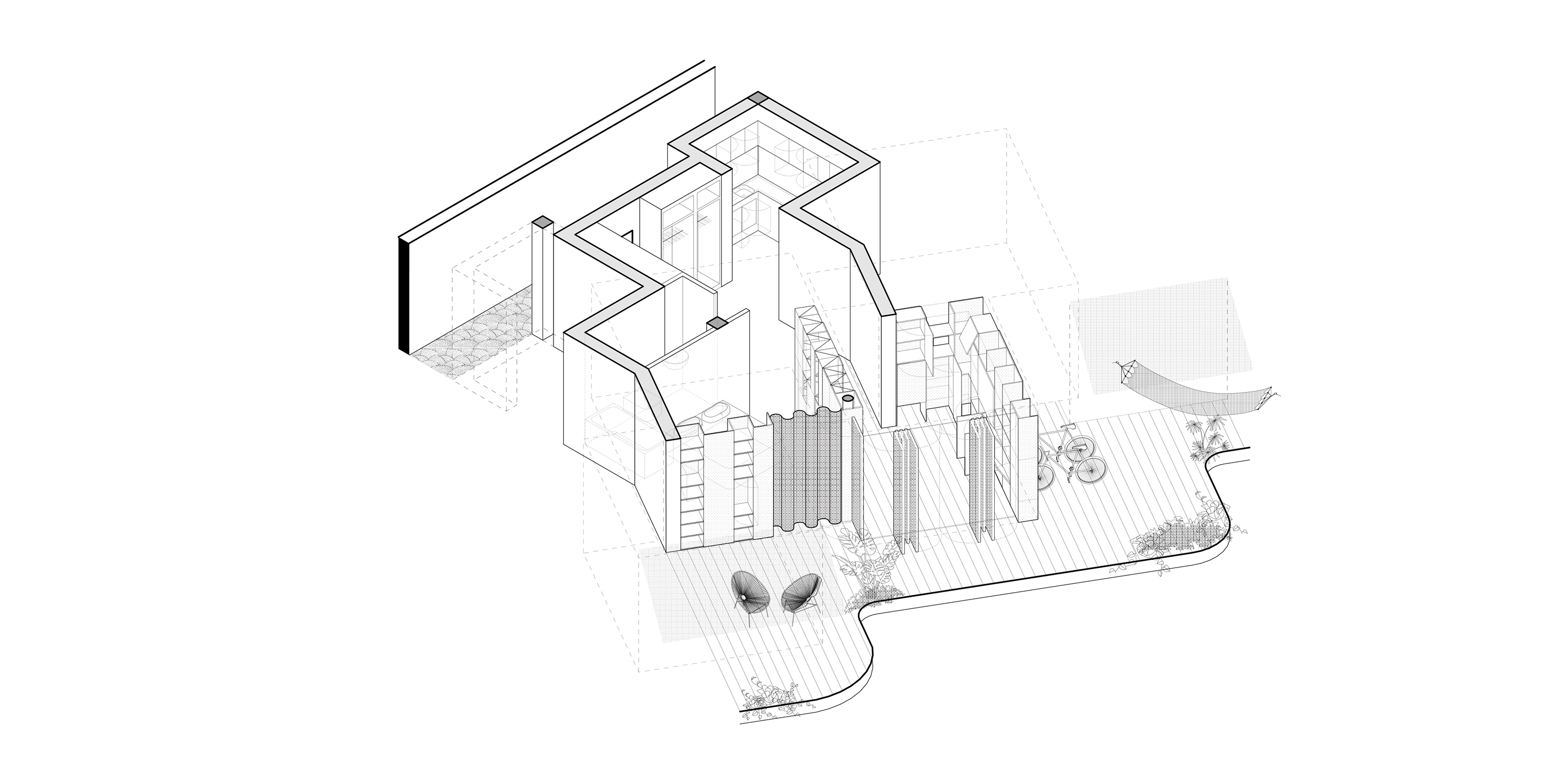
Of Plinths and Skins | Europan 15 | 2019
×
Of Plinths and Skins. An Urban Joint International Competition
Rotterdam, 2019
The site proposed by the Europan is a residual void situated at the intersection of five urban fragments poorly connected—Spangen, Tussendijken, Bospolder, M4H and Witte Dorp. Our proposal acts as an anchor that transforms leftover urban gaps into collective spaces of quality and equality. Opposed to attitudes towards urban space that are rigid, homogeneous, and fixed; we refer to the notion of adaptive continuation—that is, a kind of continuation that attends to the fluxes, energies and rhythms of the city, and that is sufficiently undefined to change and adapt together with the urban initiatives that the city is proposing. To that aim, we propose an URBAN JOINT that weaves existing heterogeneous urban fragments through three urban strategies:
- TRANS-SCALARITY: we propose to mediate intimate, collective, and public scales, through outdoor spaces of diverse forms, sizes, and activities that link into each other and into the surrounding parks (Dakpark), avenues (Galvanistraat), squares (Markt Visserijplein), and playgrounds (Piet paaljensplein)
-TRANS-SOCIAL: we propose a better mixture of economic classes and cultures, achieved through different typologies of housing that provide alternatives to nuclear family “types” and private ownership.
-TRANS-SPECIES: we propose to explore potential relationships between humans and non-humans (plants, water, animals)—ranging from concerns with production and consumption, to education, visibility, ownership and wellness.
- TRANS-SCALARITY: we propose to mediate intimate, collective, and public scales, through outdoor spaces of diverse forms, sizes, and activities that link into each other and into the surrounding parks (Dakpark), avenues (Galvanistraat), squares (Markt Visserijplein), and playgrounds (Piet paaljensplein)
-TRANS-SOCIAL: we propose a better mixture of economic classes and cultures, achieved through different typologies of housing that provide alternatives to nuclear family “types” and private ownership.
-TRANS-SPECIES: we propose to explore potential relationships between humans and non-humans (plants, water, animals)—ranging from concerns with production and consumption, to education, visibility, ownership and wellness.